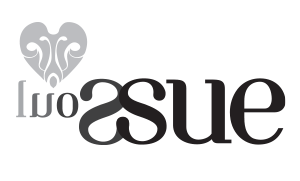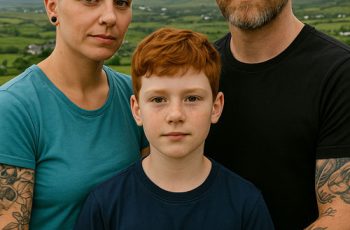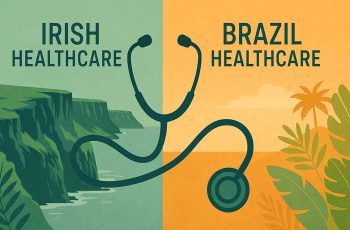Have you ever noticed that after motherhood, even when they say we are the center of everything, we still become the invisible mother? Completely absorbed in caring for the baby, yet completely neglected by society. We, invisible mothers, lose our shape the moment our baby is born. We break into tiny pieces scattered on the floor, and somewhere between sleepless nights and endless love, we try to look at the woman we once were, broken, forgotten, waiting to be rebuilt.
Not only invisible to the world, but also to ourselves. At least for the first few years, that’s how it is. In those first years, when the baby is a small, fragile bundle of joy completely dependent on our arms, we are so focused on keeping them alive and giving our best that we forget who we once were. And then comes the inevitable question: will I ever be that person again?
I promise you. No, you won’t. Today, with a teenager at home, I still try to find myself among the pieces of what was left of me. And yes, society completely neglected me when I couldn’t return to the job market after becoming a mother.
I don’t know how it is in Europe or other countries, but back in Brazil, my dear fellow mother, the job market is ruthless with us. We simply stop existing and are pushed into entrepreneurship just to survive. Maybe some women have good experiences after maternity leave, but the question I always ask is:
what did you give up to remain relevant at work?
In my case, the simple desire to be home at ten o’clock to put my son to bed was already a problem. Advertising agencies don’t respect schedules, if you’re not ready to bleed for them, you no longer belong.
And I wasn’t willing to bleed for an agency.
I was, and still am, willing to bleed for my son.
For my own creation. (If I may use the metaphor.)
The invisible mothers and presence
When we decide to mother with attachment and presence, we have to give up parts of ourselves. And the math never balances. I don’t judge mothers who made the opposite choice, each one knows where her pain lives. But for me, it was far more painful to be invisible to my child than to the market.
So here I am, still trying to rediscover myself, professionally or not. Maybe just trying to silently accept that the woman I was will never come back. And yet, I know that today I am so much more than before.
Smarter.
More flexible.
More grounded.
More experienced.
How can a mother become more of herself through motherhood, and the world still fail to see her worth? Is the world blind?
Today, I am more. Much more. And still, sometimes, I feel invisible. But I refuse to drown in guilt. I won’t buy into this sentimental weight that society puts on us. I refuse to believe that being a present mother is a mistake.
There’s a deep ethical distortion in how people see motherhood, a way of blaming us for choices that are already painfully hard to make. Choices that never give us a whole option, but a broken one, where we must leave a part of ourselves behind just to move forward.
That guilt, I don’t carry anymore. The natural guilt that comes with motherhood, of trying to be a good mother, that one is enough. But the guilt the world tries to hand me, I won’t take it.
If we are invisible mothers, my dear sisters in care, it’s not our fault.
It’s the fault of a society that still hasn’t understood the immense value of mothers in building future human beings. They say “mothers are everything”, but those are just empty words. Because when we truly need support, understanding, or a shoulder to lean on, we are alone. Or, for the lucky ones, with our own mothers. Mine is gone now. Unfortunately.
The Weight of Facts: What the Numbers Say
What we call “the invisible mother” isn’t just a feeling, it’s a measurable reality. Research across the world shows that motherhood deeply affects women’s careers, income, and mental wellbeing.
According to UN Women (2024), women dedicate 2.5 times more hours to unpaid care and domestic work than men. That invisible labor, the care, the nurturing, the constant vigilance, remains largely unseen in the economy.
In the OECD’s 2023 report, mothers of young children were less likely to be employed full-time than fathers, across every member country. Even in high-income nations like Ireland, women’s employment drops by nearly 20% after the birth of a child.
In Brazil, the numbers tell the same story.
A study by FGV (Fundação Getúlio Vargas) revealed that 48% of women lose their jobs within one year after maternity leave, and only a small portion manage to return to the same professional level.
At home, the imbalance continues. According to UNICEF’s 2022 Care Report, mothers are still the primary caregivers in 90% of households worldwide — responsible not only for the child’s physical care but also emotional and cognitive development.
These are not just numbers. They are the quiet evidence of a system that still fails to see the full weight of motherhood. And yet, despite all this, mothers keep creating: life, love, meaning, and art. Invisible, maybe. But never absent.
More soul, more stories, right this way:
- Boy Mom: The Joys and Challenges of Being a Boy Mom
- Immigration in Ireland: Feeling Invisible in a New Land
- Mary Queen of Scots: A Legacy Beyond Death
References & Further Reading
-
UN Women (2024). Progress on the Sustainable Development Goals: The gender snapshot 2024.
-
OECD (2023). Balancing paid work, unpaid work and leisure.
-
Fundação Getúlio Vargas (FGV, 2023). Pesquisa de Emprego e Desemprego — Mulheres e Mercado de Trabalho no Brasil.
-
UNICEF (2022). State of the World’s Children: Care and Early Childhood.


